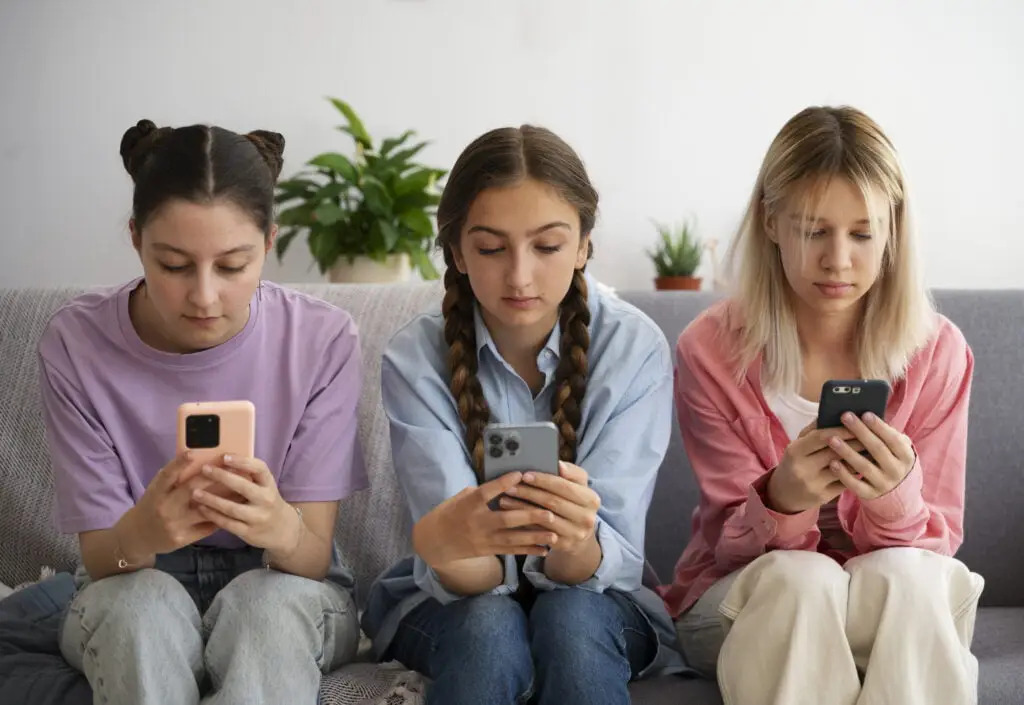Human beings are social creatures. We need the companionship of others to thrive in life, and the strength of our connections has a huge impact on our mental health and happiness. Being socially connected to others can ease stress, anxiety, and depression, boost self-worth, provide comfort and joy, prevent loneliness, and even add years to your life. On the flip side, lacking strong social connections can pose a serious risk to your mental and emotional health.
In today’s world, many of us rely on social media platforms such as Facebook, X (formerly Twitter), Snapchat, YouTube, and Instagram to find and connect with each other. While each has its benefits, it’s important to remember that social media can never be a replacement for real-world human connection. It requires in-person contact with others to trigger the hormones that alleviate stress and make you feel happier, healthier, and more positive. Ironically for a technology that’s designed to bring people closer together, spending too much time engaging with social media can actually make you feel more lonely and isolated—and exacerbate mental health problems such as anxiety and depression. If you’re spending an excessive amount of time on social media and feelings of sadness, dissatisfaction, frustration, or loneliness are impacting your life, it may be time to re-examine your online habits and find a healthier balance.
The pros of social media
While virtual interaction on social media doesn’t have the same psychological benefits as face-to-face contact, there are still many positive ways in which it can help you stay connected and support your wellbeing.
Social media enables you to:
Communicate and stay up to date with family and friends around the world.
Find new friends and communities; network with other people who share similar interests or ambitions.
Join or promote worthwhile causes; raise awareness on important issues.
Seek or offer emotional support during tough times.
Find vital social and professional connections (such as online therapy) if you live in a remote area, for example, or have limited independence, social anxiety, or are part of a marginalized group.
Find an outlet for your creativity and self-expression.
Discover (with care) sources of valuable information and learning.
The cons of social media
Since it’s a relatively new technology, there’s little research to establish the long-term consequences, good or bad, of social media use. However, multiple studies have found a strong link between heavy social media and an increased risk for depression, anxiety, loneliness, self-harm, and even suicidal thoughts.
Social media may promote negative experiences such as:
Inadequacy about your life or appearance. Even if you know that images you’re viewing on social media are manipulated, they can still make you feel insecure about how you look or what’s going on in your own life. Similarly, we’re all aware that other people tend to share just the highlights of their lives, rarely the low points that everyone experiences. But that doesn’t lessen those feelings of envy and dissatisfaction when you’re scrolling through a friend’s airbrushed photos of their tropical beach holiday or reading about their exciting new promotion at work.
Fear of missing out (FOMO) and social media addiction. While the fear of missing out or FOMO has been around far longer than social media, sites such as Facebook and Instagram seem to exacerbate feelings that others are having more fun or living better lives than you are. The idea that you’re missing out on certain things can impact your self-esteem, trigger anxiety, and fuel even greater social media use, much like an addiction. FOMO can compel you to pick up your phone every few minutes to check for updates, or compulsively respond to each and every alert—even if that means taking risks while you’re driving, missing out on sleep at night, or prioritizing social media interaction over real world relationships.
Isolation. A study at the University of Pennsylvania found that high usage of Facebook, Snapchat, and Instagram increases rather decreases feelings of loneliness. Conversely, the study found that reducing social media usage can actually make you feel less lonely and isolated and improve your overall wellbeing.
Depression and anxiety. Human beings need face-to-face contact to be mentally healthy. Nothing reduces stress and boosts your mood faster or more effectively than eye-to-eye contact with someone who cares about you. The more you prioritize social media interaction over in-person relationships, the more you’re at risk for developing or exacerbating mood disorders such as anxiety and depression.
Cyberbullying. About 10 percent of teens report being bullied on social media and many other users are subjected to offensive comments. Social media platforms such as Twitter can be hotspots for spreading hurtful rumors, lies, and abuse that can leave lasting emotional scars.
Self-absorption. Sharing endless selfies and all your innermost thoughts on social media can create an unhealthy self-centeredness and distance you from real-life connections.
What’s driving your social media use?
These days, most of us access social media via our smartphones or tablets. While this makes it very convenient to keep in touch, it also means that social media is always accessible. This round-the-clock, hyper connectivity can trigger impulse control problems, the constant alerts and notifications affecting your concentration and focus, disturbing your sleep, and making you a slave to your phone.
Social media platforms are designed to snare your attention, keep you online, and have you repeatedly checking your screen for updates. It’s how companies make money. But, much like a gambling compulsion or an addiction to nicotine, alcohol, or drugs, social media use can create psychological cravings. When you receive a like, a share, or a favorable reaction to a post, it can trigger the release of dopamine in the brain, the same “reward” chemical that follows winning on a slot machine, taking a bite of chocolate, or lighting up a cigarette, for example. The more you’re rewarded, the more time you want to spend on social media, even if it becomes detrimental to other aspects of your life.





